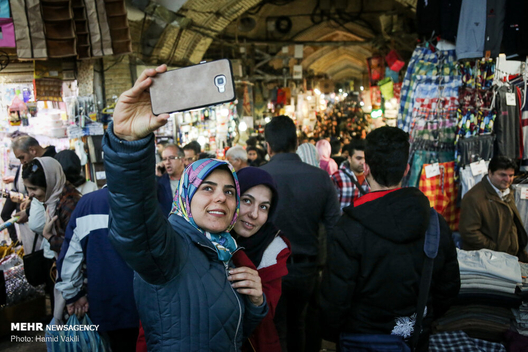Harsh measures by the Trump administration against Iran have largely united Iranian political factions against the United States but have triggered a variety of reactions from ordinary Iranians.Some have expressed hope for a more open environment as the government seeks to shore up popularity despite rising prices and diminished economic opportunity. Others believe Iran should stand up to US “bullying” despite the costs.
Alireza, an economic risk analyst, told this author that an international pressure policy, if leads to a change in Iranian political behavior, could possibly in the long run benefit the Iranian people. He noted that parliament had recently changed laws regarding the execution of drug traffickers, in part because of international pressure, leading to a significant decrease in the number of people subjected to capital punishment in Iran.
Mojgan, who works at the Monetary Council and spoke on condition that her last name not be used, also said that the pressure—despite its dire impact on inflation—could be positive if it led the government to allow more personal freedom. But she also said that more US sanctions would not be welcome.
Shima, a lawyer who works on intellectual property, echoed some Trump administration officials. “Actually people are happy with President Donald Trump’s maximum pressure policy and hope that such sanctions and isolations will weaken the regime,” she said.
Others took the opposite tack.
Fatemeh, an interior designer, told this author that while she is worried about the direction of US policies, Iran can tolerate the pain of sanctions. It should “step up to US bullying and not give in to its irrational demands,” she said.
A young Iranian diplomat who espouses reformist views, said that “the recent harsh policies implemented by the US has brought unity among the political groups against the US and more people now sympathize with the state/regime in general.”
One way in which US sanctions appear to have backfired is that it has increased support in some quarters for the Islamic Revolutionary Guard Corps (IRGC). The IRGC in recent years has been heavily criticized for its economic activities and major role in infrastructure projects and foreign trade. However, after the US State Department designated the guards as a “foreign terrorist organization,” members of parliament showed up in IRGC uniforms. Many Iranians attending Friday prayers did the same, state television broadcasts showed.
The leader of Friday prayers in Tehran, Ayatollah Mohammad Ali Movahedi-Kermani, who also wore the military uniform of the IRGC, condemned the US action, saying, “All the Iranian people are members of the Revolutionary Guards.”
Fakhri Mohtashipour, a member of the reformist Islamic Participation Front and head of a group of women entrepreneurs, noted that the reformists have condemned both US sanctions and the designation of the IRGC as a terrorist organization. She accused the US of seeking regime change while at the same time noting that reformists have always preferred that the IRGC return to its original role as protecting Iran’s territorial integrity and that it reduce its role in the economy.
The Iranian government has strongly protested the US sanctions and Foreign Minister Mohammad Javad Zarif gave multiple interviews on a recent visit to New York. He interpreted the hostile steps by the United States as driven by what he called the “B-Team”—Israeli Prime Minister Benjamin Netanyahu, US national security advisor John Bolton, and their Arab allies, Mohammed bin Salman of Saudi Arabia and Mohammed bin Zayed of the United Arab Emirates. Zarif tried to appeal over their heads to President Trump by going on Fox News. “They have all shown an interest in dragging the United States into a conflict,” Zarif said. “I do not believe that President Trump wants to do that.”
Zarif’s comments reflected a widespread view among Iranians that US policy is somehow dictated by Israel and Iran’s Arab foes rather than reflecting a genuine US position toward Iran. Some Iranians, who are accustomed to looking for distinctions among their own government officials, try to distinguish President Trump from hardliners in his administration such as Bolton, a long-time hawk when it comes to Iran.
Although Zarif told interviewers that he was not placing any hope on Trump losing in the 2020 elections, other Iranians are clinging to a “strategic patience policy” when it comes to the United States. They are betting that the US will get a new president willing to return to compliance with the Joint Comprehensive Plan of Action.
In the meantime, reformists and conservatives in Iran have demonstrated unusual solidarity.
President Hassan Rouhani, who represents pragmatists and reformists and has tried to reduce the power of the IRGC in the economy, strongly condemned the designation of the Revolutionary Guards by the US as a terrorist organization. “Who are you to label revolutionary institutions as terrorists?” he asked. “You are the leader of world terrorism.”
Tahereh Hadian-Jazy is a free-lance writer in Iran. She holds a masters degree in modern Middle Eastern studies from Oxford University and has been accepted for a PhD at the University of St. Andrews.
Image: Young Iranian women take a selfie in Tehran's grand bazaar (Mehr News Agency)
